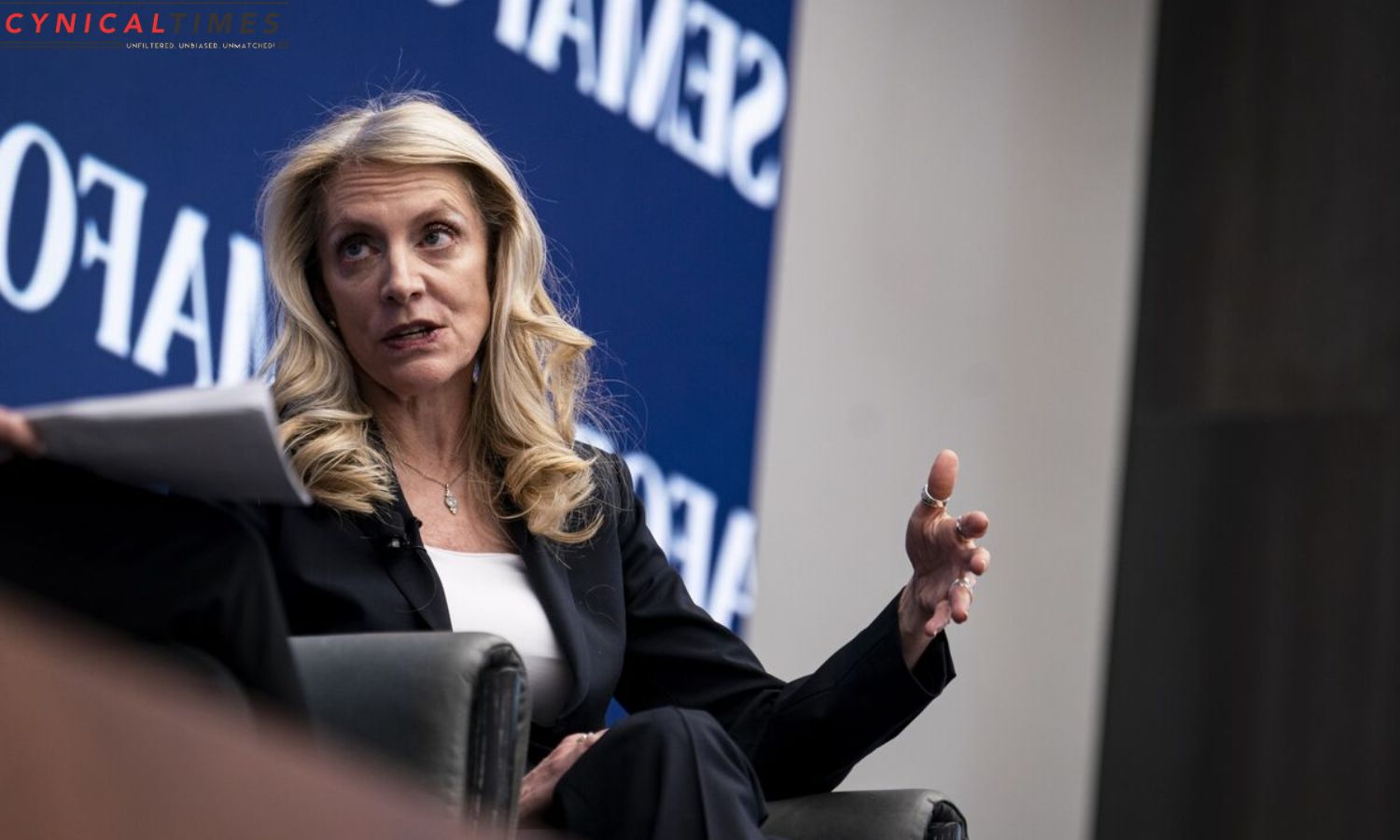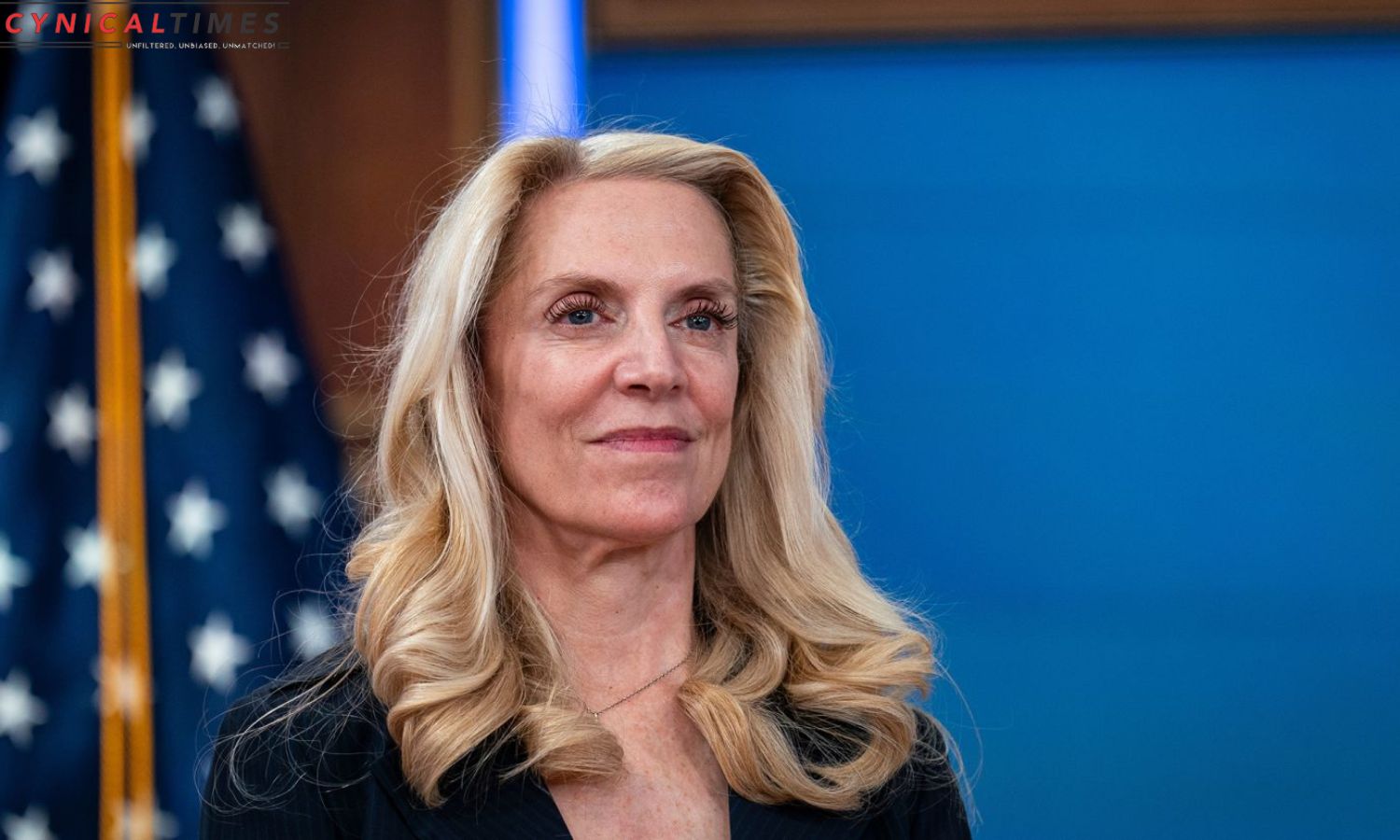White House Economist Lauds: In a recent statement, the White House economist commended the United States’ remarkable success in combatting inflation. This achievement, grounded in resilience and careful planning, has positioned the nation as a global leader in economic stability.
However, despite this commendable progress, potential risks such as geostrategic challenges and the recent US Steel acquisition by Nippon Steel demand continued vigilance.
This article explores the economist’s perspective on the battle against inflation, highlighting both successes and potential areas of concern.
Key Takeaways
- Significant decrease in inflation to 2% on a six-month basis
- Acknowledgment of resilience of US economy, consumers, and job market
- Impact of geostrategic factors on US economy
- Implications for national security and critical supply chain
Achievement against Inflation
The significant decrease in inflation to 2% on a six-month basis marks a notable achievement in the United States’ battle against rising prices, according to the White House economist. This achievement is a result of the country’s robust economic growth and strong employment.
Recent data from the Commerce Department shows a notable cooling of a key inflation gauge, surpassing economists’ expectations. In fact, inflation dropping to 2% on a six-month basis has reached the pre-pandemic benchmark, exceeding even optimistic forecasts.
This achievement showcases the effectiveness of the measures implemented to combat inflation and highlights the progress made in stabilizing prices. The United States’ successful battle against inflation is a significant milestone and reflects the government’s commitment to maintaining a healthy and stable economy.


Resilience and Potential Risks
Brainard acknowledges the resilience of the US economy, consumers, and the job market, while also highlighting potential risks such as geopolitical tensions and escalating attacks impacting shipping and inflation. Despite the progress made in the battle against inflation, Brainard recognizes the need to remain vigilant in the face of various risks.
To convey a deeper meaning to the audience, the following potential risks should be considered:
- Geopolitical tensions: The ongoing conflicts and disputes between nations can have far-reaching economic consequences.
- Escalating attacks impacting shipping: Acts of piracy or terrorism can disrupt global trade and lead to higher transportation costs.
- Inflationary pressures: Rising prices can erode purchasing power and negatively impact the economy.
- Political instability: Internal political conflicts can create uncertainty and hinder economic growth.
- Supply chain disruptions: Disruptions in the supply chain, such as natural disasters or trade disputes, can disrupt production and lead to higher prices.
Geostrategic Risks
Continuing the analysis of potential risks, the impact of geostrategic factors on the US economy cannot be overlooked. Geostrategic risks refer to the potential threats arising from geopolitical events and conflicts that can have significant economic consequences. These risks can disrupt global trade, impact commodity prices, and create volatility in financial markets.
In the context of the ongoing Russian invasion of Ukraine, the grain markets are being affected, which could lead to inflationary pressures. Additionally, the escalated attacks by Yemen’s Houthi militants on commercial ships in the Red Sea raise concerns about potential impacts on inflation and oil prices. To address these risks, the White House economist emphasizes the importance of constant monitoring by the national security team, communication with stakeholders, and regional collaboration to ensure navigation freedom and enhanced security.
| Geostrategic Risks | Impact on US Economy | Examples |
| Disrupted Global Trade | Reduces export opportunities | Trade tensions between US and China |
| Commodity Price Volatility | Increases production costs | Conflicts in major oil-producing regions |
| Financial Market Instability | Causes investor uncertainty | Geopolitical tensions leading to market sell-offs |

US Steel Acquisition by Nippon Steel
The acquisition of US Steel by Nippon Steel has raised significant interest and scrutiny in the economic landscape. This deal has several implications that warrant attention:
- National security: The steel sector plays a crucial role in national security and the critical supply chain. The acquisition could potentially impact the country’s ability to meet its own steel demands during times of crisis.
- Global investment: The Biden administration welcomes global investment in the manufacturing resurgence. However, it remains committed to assessing transactions that may have implications for national security and critical industries.
- Supply chain resilience: The acquisition highlights the need to ensure the resilience of the domestic steel supply chain. Dependence on foreign entities for a critical resource like steel raises concerns about vulnerabilities and potential disruptions.
- Competitiveness: The deal could impact the competitiveness of the US steel industry, as foreign ownership may result in changes in production, pricing, and market dynamics.
- Regulatory scrutiny: The acquisition will face regulatory scrutiny to assess its potential implications for competition, market concentration, and national security.
It is important to carefully evaluate the potential outcomes and implications of this acquisition to ensure the long-term stability and security of the US steel industry.
White House Economist Lauds Successful
As the US steel industry faces the potential acquisition by Nippon Steel, careful evaluation of the implications is crucial for ensuring long-term stability and security. The Biden administration’s focus on national security and critical supply chains highlights the need for thorough scrutiny of such deals.
The acquisition of US Steel by Nippon Steel raises concerns about the impact on domestic steel production, employment, and national defense capabilities. It is essential to assess the potential risks to the US economy and strategic interests before approving any foreign acquisition.
Additionally, maintaining a strong and competitive domestic steel industry is vital for supporting infrastructure development, national defense, and job creation. Striking the right balance between open markets and safeguarding national interests will be crucial in making informed decisions about foreign acquisitions in sensitive industries like steel.
Conclusion Of White House Economist Lauds
In conclusion, the White House economist commends the successful efforts in combating inflation in the United States.
However, it is important to acknowledge the resilience of the economy and remain cautious of potential risks.
The article also highlights the geostrategic risks and the acquisition of US steel by Nippon Steel.
Overall, the battle against inflation and the continuous monitoring of potential risks are crucial for sustaining economic stability in the country.
Also Read: White House Christmas: A Tradition of Elegance and Innovation
Our Reader’s Queries
Who are the White House economists?
Jared Bernstein, Heather Boushey, and Kirabo Jackson are currently serving as Chair and Members of the CEA under President Biden. Their collective efforts are focused on steering America’s economic recovery and ensuring that our nation emerges stronger than ever before. With their expertise and dedication, we can be confident that our country is on the right path towards a brighter future.
Is Bidenomics successful?
Despite the economy’s impressive performance, with record-low unemployment, rising real wages, strong GDP growth, and a rapid fall in the inflation rate below both global and historical averages, only 36 percent of Americans approve of Biden’s handling of it.
Who is Joe Biden’s chief economic advisor?
In January 2021, President Joe Biden appointed Bernstein to the Council of Economic Advisors. Two years later, in February 2023, Bernstein was nominated by President Biden to take over as Chair of the Council of Economic Advisers, succeeding Cecilia Rouse.
Who writes the economic report of the president?
Each year, the Chairman of the Council of Economic Advisers pens the Economic Report of the President. This report provides an in-depth analysis of the current state of the economy and offers insights into potential future trends. It is a valuable resource for policymakers, economists, and anyone interested in understanding the economic landscape of the United States. With its clear and concise language, the report is accessible to readers of all levels of expertise.

